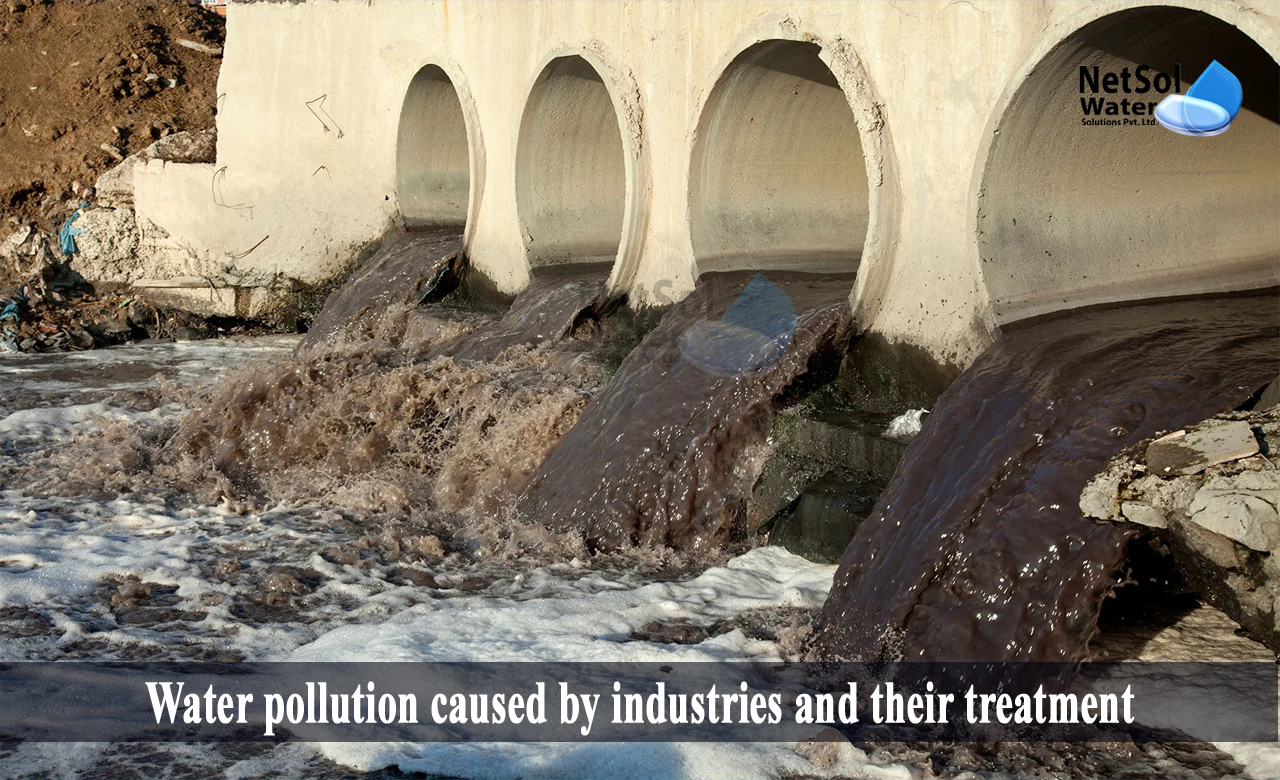India is the world's second most populous country, with a long coastline on its western border. The country's dense population, rapid industrialization, and urbanization have resulted in significant water pollution.
What is the Water pollution caused by industries and their treatment?
Water pollution can be caused by a variety of factors, including agricultural runoff from pesticides and fertilizers, wastewater discharged directly into rivers or streams, untreated sewage that enters waterways, and other activities that pollute surface waters.
Many factors influence water quality, including the type of pollutant, concentration, frequency and duration of discharge, weather conditions, and location within the watershed.
Water pollution caused by industries
Pollutants have the potential to harm animals, plants, and humans. Industrial wastes, air pollutants (smog, smoke), and water pollutants are all examples of pollutants caused by industrial effluents.
Industrial pollution is a complex issue that necessitates coordinated action at all levels, of government, especially when there is a discussion on the industrial water pollution.
Industrial wastewater disposal procedures
The most common method is to use chemical and physical processes that produce waste products. These waste products can be difficult to dispose of because they frequently contain chemicals, or heavy metals that are toxic to humans or animals, or they may necessitate special treatment, before disposal.
Furthermore, many industrial waste materials have been used for commercial purposes, and must be properly disposed of in accordance with environmental regulations.
What are some common contamination sources?
Most people imagine contaminated water coming from their tap, but there are several other possibilities. If you live near a factory, for example, you may be exposed to hazardous chemicals or particles that end up in your drinking water.
Even, if you do not live near a large industry, you are still at risk from contaminated groundwater. Contaminants enter the environment in a variety of ways, which vary depending on the type of contaminant.
There are two types of pollution sources:
· Point-source pollution
· Nonpoint-source pollution
Point-Source Pollution
Pollution from a single source is referred to as point-source pollution. A point source is a pipe, ditch, or channel that transports polluted water away from the source. Storm drains, septic tanks, and wastewater treatment facilities are examples of point-source pollution.
Non-point Source Pollution
Pollutants move away from their original location, resulting in non-point source pollution. This means that the pollutants originate from multiple sources. This can occur in both natural and unnatural ways.
Erosion, rainfall, and snowmelt are all-natural causes. Agricultural practices such as overfertilization, pesticides, and animal waste are examples of unnatural causes, as are urban development such as roadways, parking lots, and rooftops, and construction activities such as building foundations, trenches, and landfills.
Ways to control or reduce industrial water pollution
1. Source Management
Adopting new technology, effectively training employees for safe use, developing better waste disposal technology, and being more conscientious about the use of raw materials, can all help to control industrial pollution at its source.
2. Recyclability
To reduce industrial water pollution, increased recycling efforts as much as possible.
3. Industry Location Selection
Consideration of the sites' location and potential impact on the surrounding environment, can help reduce negative consequences.
4. Proper Industrial Wastewater Treatment
Pollution can be reduced by developing and implementing adequate treatment facilities, for industrial waste, as well as adopting good habits.
Conclusion
Water pollution can be reduced by taking some basic and simple steps, such as not disposing waste, dried flowers, and other items into bodies of water, and encouraging farmers to switch to organic farming, which reduces agricultural waste in bodies of water.
Industrial waste should be monitored and industries should be encouraged, to avoid dumping untreated waste into bodies of water. To prevent water pollution, soil erosion should be managed, urban runoff should be controlled, and so on.
How can we assist?
Netsol Water has aided in the resolution of hundreds of water-related problems, by utilizing a wide range of specialized water treatment and wastewater treatment technologies.
Netsol Water is Greater Noida-based leading water & wastewater treatment plant manufacturer. We are industry's most demanding company based on client review and work quality. We are known as best commercial RO plant manufacturers, industrial RO plant manufacturer, sewage treatment plant manufacturer, Water Softener Plant Manufacturers and effluent treatment plant manufacturers. Apart from this 24x7 customer support is our USP. Call on +91-9650608473, or write us at enquiry@netsolwater.com for any support, inquiry or product-purchase related query.



